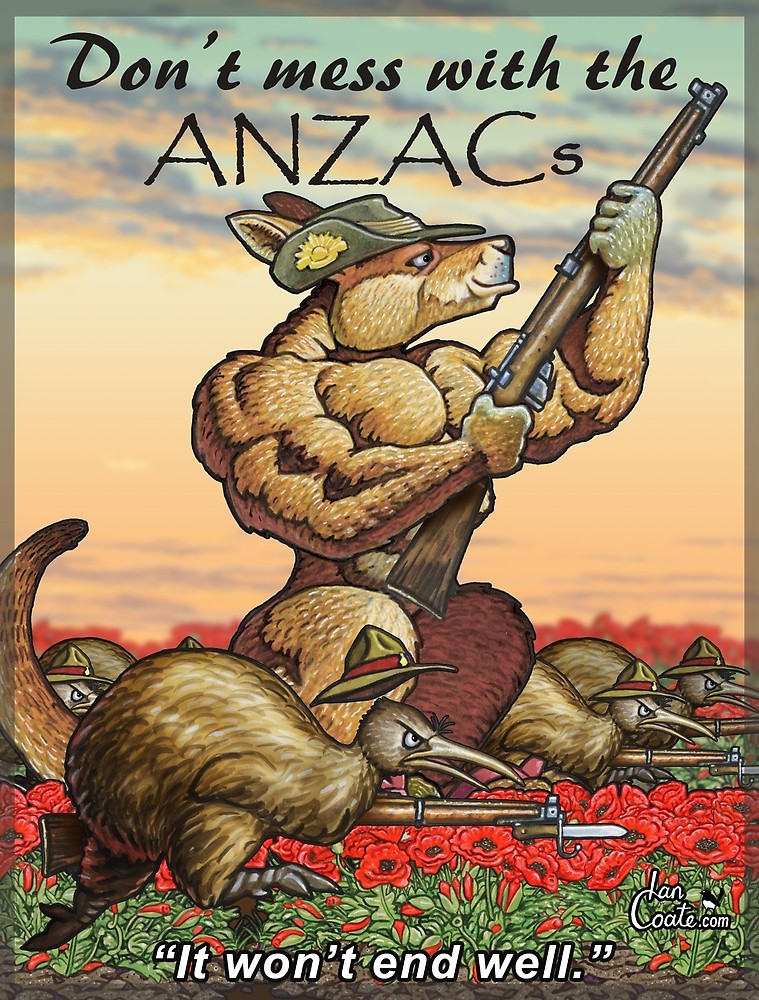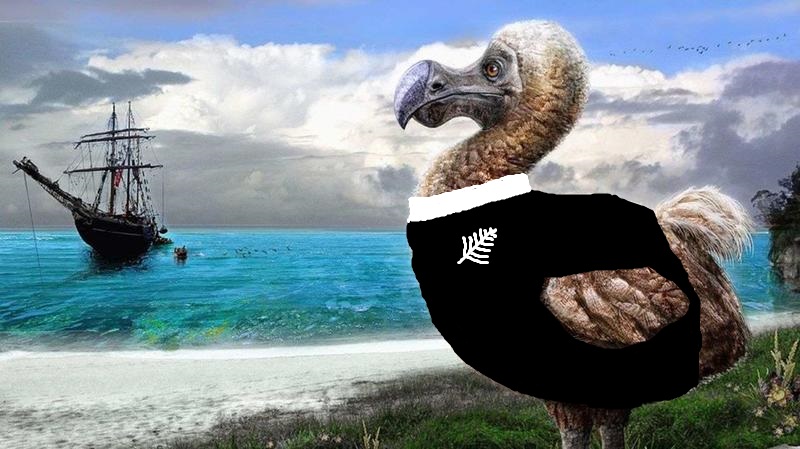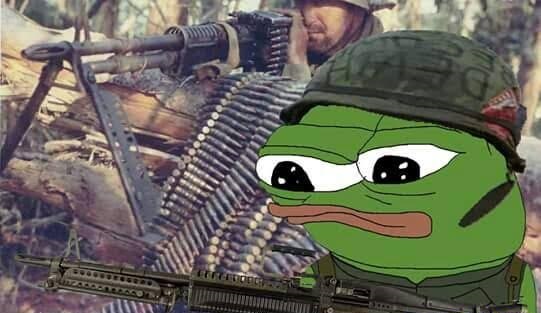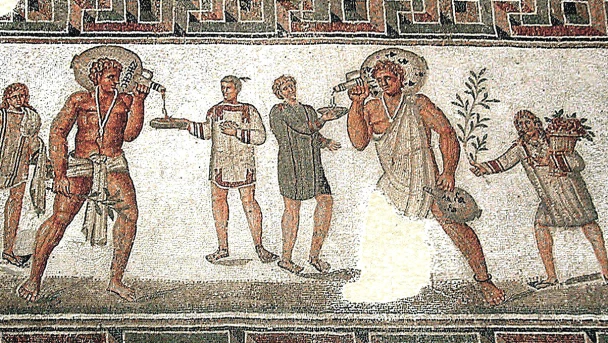
As another Grievance Day dawns on these sleepy isles, the division and hatred between all of society’s components is set to intensify. Today’s newspapers and television broadcasts will tell us all how we hate each other, and how our national history is one of theft, murder and rape. Grifters, shysters and con artists of all descriptions will crawl out of every hole to exploit these grievances. It promises to be a sad and depressing spectacle.
The good news is that all of this discord is destined to end. It will end once New Zealand accepts its inevitable, inescapable destiny – to be united with Australia as a single Anzac Empire.
We are only separated by historical fluke. In 1901, the six separate colonies of Australia agreed to join in union. An offer to join this federation was extended to New Zealand, but it was declined. The reasoning at the time was that over a thousand miles separated the two lands – several days’ voyage by steamer. In the era before aeroplanes, the Tasman Sea was a yawning expanse.
This unwillingness to unite as a single people may have seemed reasonable at the time, given that the British Empire was then at its peak. European supremacy, in the last days of Victoria’s reign, seemed the natural order of things. As no threat to British control of the seas appeared possible, there appeared to be no great need for unity on the part of her subjects Down Under. Our only rivals were each other.
By 2020, given the rise of great Asian powers such as China, India, Japan, South Korea and Indonesia, the decision to strike it alone seems, in hindsight, an error. Impulsively made, with inadequate consideration given to the long-term consequences, this mistake has cast New Zealand adrift from our true course for 120 years.
It’s time to revisit that decision in the light of a new century.
The reality is that New Zealanders and Australians are one people, with one destiny.
Both Australia and New Zealand were brought into existence by the same wide-sweeping act of creation. Over the last quarter of a millennium, British settlement transformed this part of the world from a Stone Age backwater, forgotten by God, into one that has won more Nobel Prizes than either India or China.
Our paths of development since then have been the same. Ever since those earliest days of settlement, trans-Tasman immigration has been more intense than immigration within many other countries. New Zealand’s greatest ever Prime Minister, Michael Joseph Savage, was born in Victoria and did not move to New Zealand until his mid-30s. We grew up together.
We also reached manhood together, in the artillery fire of the Gallipoli landings and later in World War II, Korea and Vietnam. Our combined struggles in all of these conflicts saw the rest of the world see our kind as one: tough, determined, unrepentant killers and pisstakers. Bloody-minded larrikins, fearless to a fault, who you’re much better to have on your side than against you.
Today, New Zealand streets, workplaces, schools and sportsfields are all but indistinguishable from Australian ones. The streets bear the same names, the flags bear the same stars, the footballs are the same shape. Offshore investment agencies bundle Aussie and Kiwi shares up into Australasian packages, their purchasers often unaware that the two are technically different countries.
Kiwis regularly move to Australia for work, then back to New Zealand for a spell, then back to Australia again. Over 2% of the population of each country was born in the other. Rates of intermarriage between New Zealanders and Australians are extremely high. Not only are we similar in kind, but the degree of intermingling ensures that we can never become much different in the future.
Seen from a global perspective, and not merely from the myopic perspective of a monoglot who considered the British Empire to be the world, there is no meaningful difference between New Zealanders and Australians. There never was. It weighs on us, then, to put an end to the charade of being different. It’s weighs on us to formalise this unity of blood, minds and souls.
We’re impelled to do this by the great difference between us and everyone else.
The thirty million souls belonging to the Anzac Empire occupy a very distinct and very clearly delineated part of the world. To the East of us, there is nothing but the Pacific Ocean. To the West of us, there is nothing but the Indian Ocean. To the South of us, there is nothing but the Southern Ocean.
Our only natural border is to the North, and here we have something very real: a sea that separates us from two hundred million people with very different mentalities and ways of life. The cultural border between Northern Australia and Asia is as hard as any cultural border anywhere.
But no cultural border exists on the Tasman Sea.
Anzac culture can assert its own space on the world stage, distinct to other Anglo cultures. Although we share the outdoors, barbeque, cricket-and-rugby culture with the South Africans, the pioneering mentality with the North Americans and a linguistic heritage with the British, other things, perhaps more subtle things, are not shared. Other Westerners tend to be uptight, rule-bound, humourless and meek. Anzacs are none of those things.
Our Anzac Empire would not only be capable of standing proud intellectually and culturally, but it could also do so in terms of hard power.
Anzacistan would have, at time of writing, a nominal GDP of close to USD1,600,000,000,000, making it the world’s 13th largest economy. An economy the size of Russia’s, with a land area half that of Russia’s, would allow for a self-defence program sufficient to safeguard our liberties. It’s fate that this nation, so open to the sea, would one day command a formidable navy, perhaps a fleet of nuclear submarines.
Perhaps most important of all, its future would be secured by the fact that the high standard of living would always make it an attractive destination for the best class of immigrant. The Anzac nation, despite a heavily British base, is today a composite of many of the world’s most industrious and intelligent people. Maintaining this into the future will ensure that we have the human capital necessary to remain prosperous.
The Spear of Destiny continues to move ever-Westward. It has resided in America for some time, but now appears set to cross the great Pacific Ocean. Most of the world expects it to go to China, the Middle Kingdom clearly being the ascendant power of the last quarter century. Some expect it to go to Japan. It’s possible, however, that the Great Magnet of the World comes to reside in the Anzac Lands.
The fate of Australasia is to become a great power – this is guaranteed by her vast size, of some eight million square kilometres. The Will of God is apparent to all on this subject. The only question is whether we shall become the great power. The Southern Stars this century will rise, and rise, and rise, and several of the old Northern powers will exhaust themselves and begin to wane.
New Zealand shall be as the Britain to the Europe of Australia – a moderating and guiding force. Uniting as one Anzac nation, Australia shall provide the clay and iron, and both countries the silver, but New Zealand’s great contribution to this nation shall be the gold of spiritual leadership. Australia can be the shield and armour; New Zealand can be the sword.
It’s time for the Anzac nation to recognise the call of destiny. Unite, and let our people take their rightful place as a great power upon the world stage. Unite, and let Britain become to us as Rome and Greece are to the West. It’s our time. The Southern Sun shines for us!
*
If you enjoyed reading this essay, you can get a compilation of the Best VJMP Essays and Articles of 2019 from Amazon for Kindle or Amazon for CreateSpace (for international readers), or TradeMe (for Kiwis). A compilation of the Best VJMP Essays and Articles of 2018 and the Best VJMP Essays and Articles of 2017 are also available.
*
If you would like to support our work in other ways, please consider subscribing to our SubscribeStar fund.



